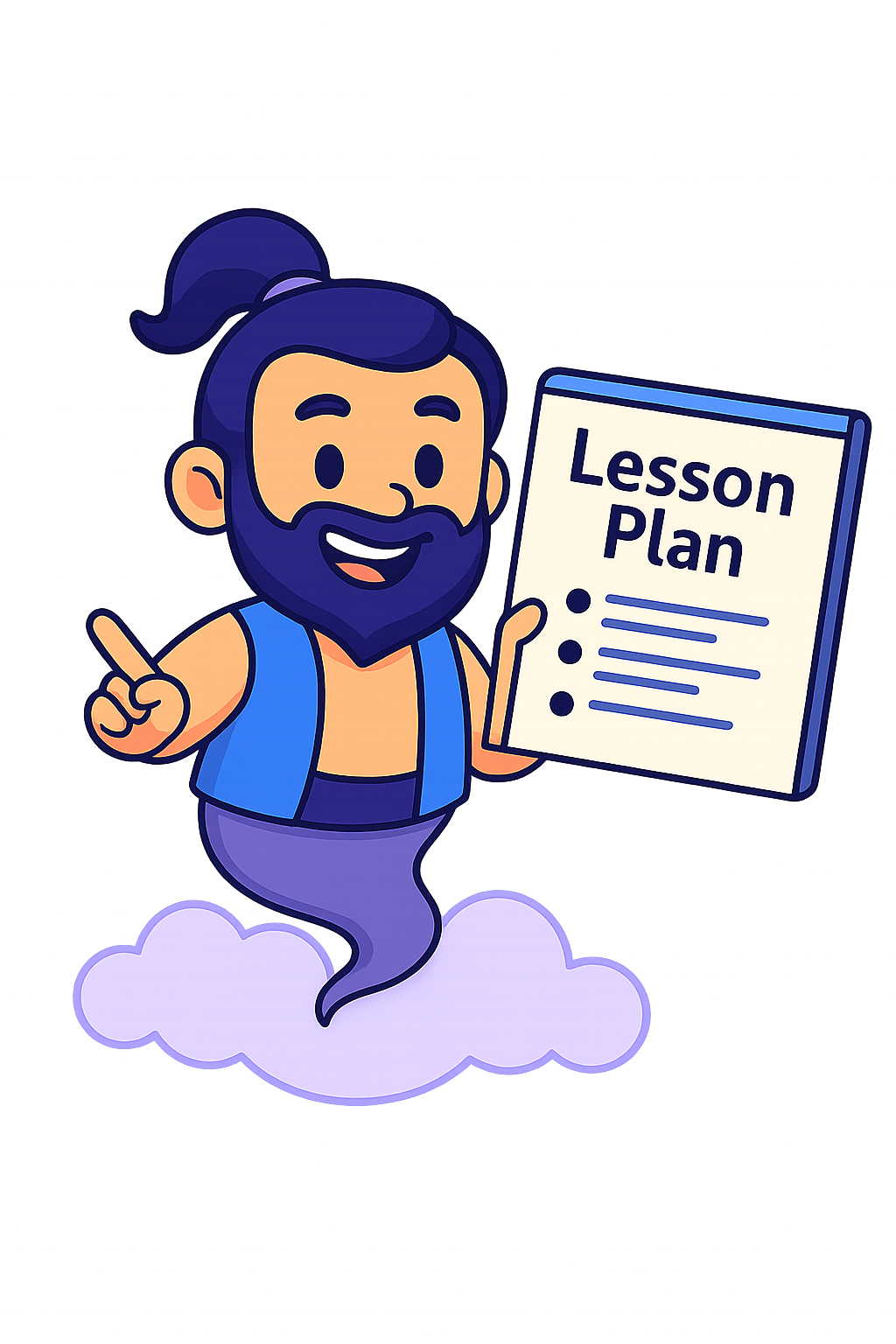 Recognizing and Producing Rhyming Words
Recognizing and Producing Rhyming Words
Objective: Students will be able to recognize and produce rhyming words to develop phonological awareness, meeting the standard K.RF.2e.
Learning Objectives
- Identify two words that rhyme.
- Generate a word that rhymes with a given word.
- Understand that rhyming words have similar ending sounds.
Materials Needed
- Picture cards with simple words (cat, hat, dog, log, sun, fun)
- Rhyming word matching worksheet
- Crayons or markers
- A short rhyming story or poem
Key Vocabulary
- Rhyme
- Words that have the same ending sound, like cat and hat.
- Phonological Awareness
- The ability to hear and play with sounds in words.
- Sound
- A noise or speech element we hear in words.
Detailed Activities
Rhyming Word Introduction
- Read a short rhyming poem or story aloud to the student.
- Pause to emphasize pairs of rhyming words and say them together.
- Ask the student if they hear words that sound the same at the end.
Rhyming Word Match
- Show picture cards with simple words one by one.
- Help the student find another card that rhymes with the first card.
- Repeat with several pairs, encouraging the student to say the rhyming words aloud.
Create Your Own Rhymes
- Say a simple word aloud, such as ‘sun’.
- Ask the student to think of a word that rhymes with it (like ‘fun’).
- Write the words down and have the student color pictures representing each word.
Parent & Instructor Notes
- Encourage your child to listen carefully to the ending sounds of words.
- Make the activities fun by using silly rhymes or songs to keep your child engaged.
- Be patient and praise efforts, even if the rhymes are not perfect at first.
Assessment Questions
- Can you tell me which two words rhyme: cat and dog, or cat and hat?
- What word rhymes with sun: fun or ball?
- Can you say a word that rhymes with log?
Extension Ideas
- Create a rhyming word book by drawing pictures of rhyming words your child finds.
- Play rhyming word games during daily routines, such as naming rhyming foods or objects.
- Use nursery rhymes and ask your child to identify rhyming pairs.
Frequently Asked Questions
Try slowing down your speech and emphasizing the ending sounds. Use visual aids like picture cards to help your child connect sounds to words.
Short daily sessions of 5-10 minutes are effective and keep learning fun without overwhelming your child.
Teacher’s Guide
Common Misconceptions:
- Children might confuse rhyming with words that start with the same sound rather than end with the same sound.
- Some children may focus on spelling rather than sounds when trying to rhyme.
- Students might mistakenly think words rhyme if they look similar but sound different.
Scaffolding Ideas:
For Struggling Students:
- Use fewer word pairs and focus on very simple, clear rhymes.
- Incorporate songs and rhymes with repetition and rhythm.
- Provide one-on-one support with picture cards to isolate sounds.
For Advanced Students:
- Challenge students to create short rhyming sentences or poems.
- Introduce less common rhyming word pairs to expand vocabulary.
- Encourage identifying rhyming words in storybooks independently.
Pacing Recommendations:
- Begin with simple rhyming pairs and gradually increase difficulty.
- Allow extra time for practice if the student is new to rhyming concepts.
- Keep sessions short and engaging to maintain attention.
Standards
- K.RF.2e — Recognize and produce rhyming words to build phonological awareness.
Printable Worksheet
Plan Your Own Lesson
Looking for a custom lesson plan? Try our Lesson Planning Generator — create standards-based plans for any topic, instantly!
Common Core Aligned Lesson Plans
Looking for another common core lesson? See all of the lesson plans here.
More Free Lesson Plans
We’re adding more every week! Check back soon or explore all our lesson plans here.

 Recognizing and Producing Rhyming Words
Recognizing and Producing Rhyming Words
Leave a Reply